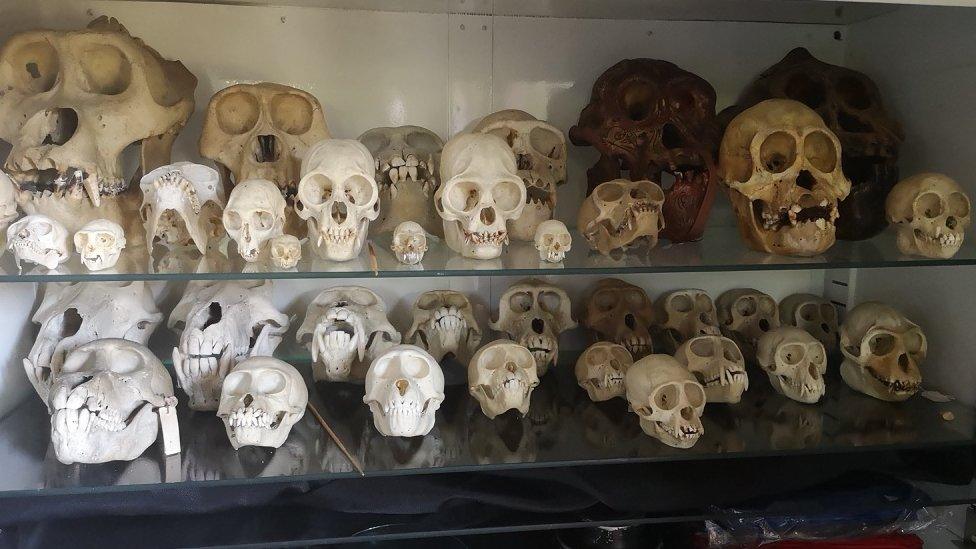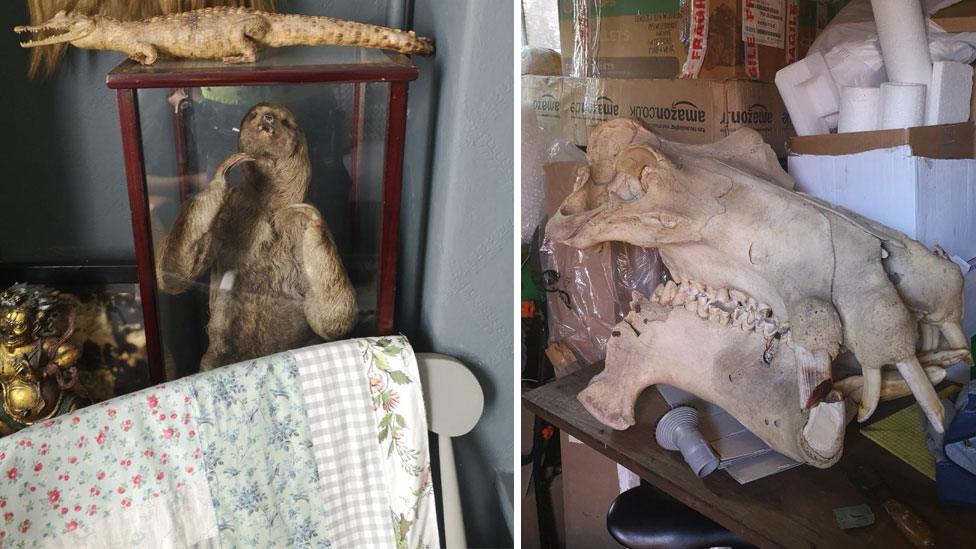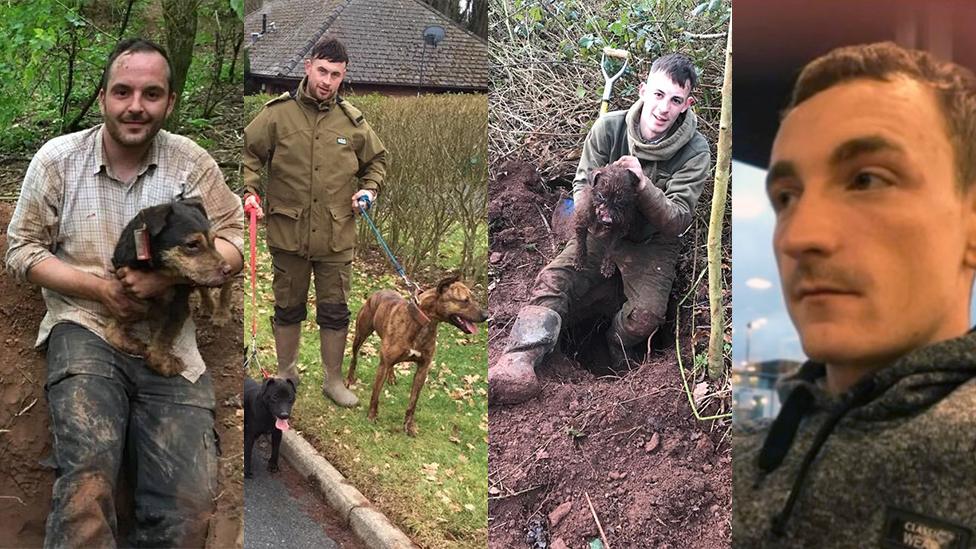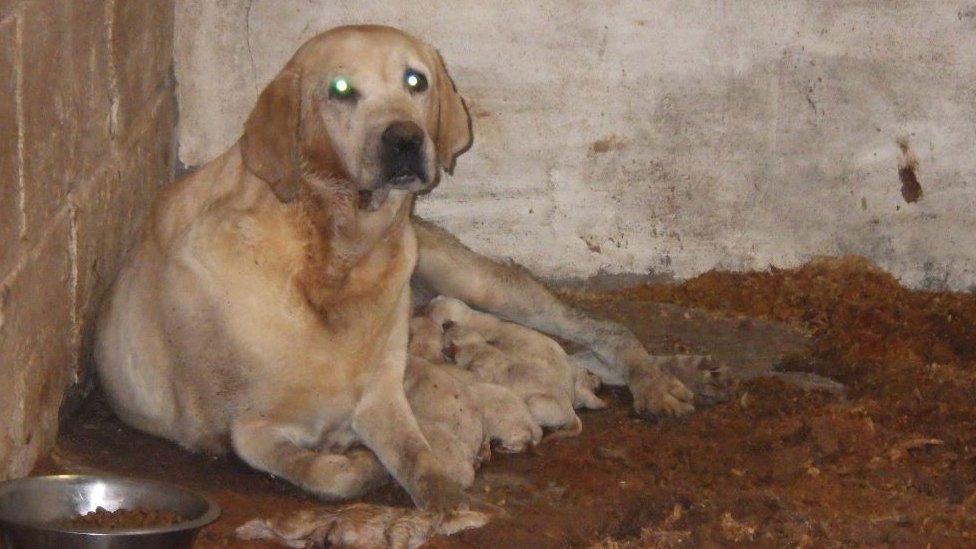Cardiff man admits importing endangered animal bones
- Published

A large collection of skulls was found among Michael Tang's collection
A man found with the bones of endangered species in his home has been given a 12-week suspended jail sentence.
Michael Tang, 49, was an "avid collector" who also sold items on eBay, Cardiff Crown Court heard.
But a judge said there was an "arrogance" about the way he flouted regulations set up to protect species.
The illegally imported objects included a gibbon skeleton and skulls from a gorilla and an orangutan.
Tang, of Coronation Road in Cardiff, admitted 18 charges of purchasing and importing animal species unlawfully and six related charges.
He had collected a significant amount of objects listed as endangered or at risk of extinction between 2000 and 2018.
But the court heard legislation was in place to control and regulate the purchase of items relating to endangered species.

Other objects included a sloth and a hippopotamus skull
Derek Gooden, mitigating, said Tang accepted he had paid "scant regard" to the need for permits.
However, he said after authorities made him aware when they visited his home in July 2018, he was fully co-operative.
"Had he conducted his due diligence, he would never have bought or sold these items," Mr Gooden said.
Tang was said to be a talented animator who had worked on several Bafta award-winning animations.
Sentencing him, Judge Eleri Rees said: "Whatever your motives, it's the actions of people like yourself that put risk to these species.
"You are a man of talent and ability and this makes it more inexplicable that you flouted the law in this way."
Tang admitted 18 charges of purchasing a specimen of a species which has been imported unlawfully and six charges of fraudulent evasion of a prohibition or restriction.
He was given a 12-week sentence suspended for 12 months, ordered to do 120 hours of community work and pay £1,200 in costs.
The animal parts will now be kept by National Museums Scotland.
- Published3 October 2019

- Published25 April 2019
